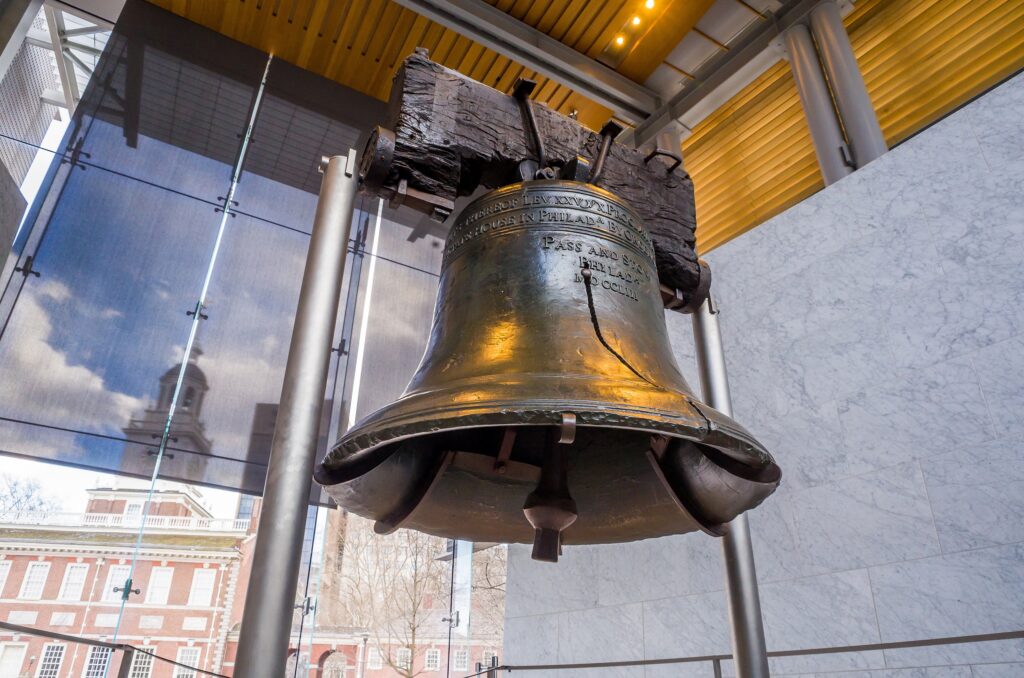President Trump has now signed more spending in two years than President Obama ever did
Much has been made about how much Congress has been spending recently, and rightfully so.
The CARES Act, for example, is the signature piece of legislation in response to the pandemic – and it will spend more than $1.3 trillion. That’s on top of the first two rounds of coronavirus relief, which spent nearly $100 billion and $500 billion respectively.
These bills have made the 116th Congress—and President Trump—the biggest spenders in recent memory. Spending Tracker now estimates that Congress and President Trump have kicked off more than $2.3 trillion in new spending since the start of 2019.
It’s not just due to the coronavirus, though of course that’s a big part of it. Other spending has piled up, too, including further increases to the Pentagon, various supplemental appropriations, and the now all-but-forgotten Bipartisan Budget Act, which enabled nearly $300 billion in additional spending on top of mandated and perpetually ignored discretionary budget caps.
In President Obama’s first two years in office, at the height of the financial crisis, Congress also passed a flurry of big-spending legislation. Some, like the American Recovery and Reinvestment Act, was targeted specifically at the immediate crisis, and echoed legislation passed at the end of the Bush Administration, such as the Troubled Asset Relief Program (or TARP).
However, like the current Congress, the 111th also spent on a number of programs unrelated to the economic downturn, including the Affordable Care Act, the “doc fix,” and increases to the Pentagon budget of their own.
This spending was enough to launch a national revolt, kicking off protests around the country about the size of government and debt and helping a new wave of self-proclaimed fiscal conservatives sweep into office in 2010.
And yet, all of that spending has now been dwarfed by President Trump in the last two years of his term in office. Whereas President Obama signed into law nearly $2.2 trillion in new spending in his first two years in office, Trump’s $2.3 trillion is the most in the Spending Tracker database – and we’re not even done with this session of Congress, which is still likely to bring another NDAA, appropriations bills, and of course, another COVID-19 relief package.
President Trump didn’t enact all this spending by himself. The House and Senate, of course, have to pass the bills first. Looking at their records reveals wide variation.
While the CARES Act was passed by unanimous consent in the House, previous aid was not. The Families First Coronavirus Response Act received 40 no votes from Republican Congressmen, and eight in the Senate. The subsequent Paycheck Protection Program and Health Care Enhancement Act only had five votes against in the House and was passed by unanimous consent in the Senate.
Amazingly, 76 members of the House have all voted for every piece of legislation that spends money and has been signed into law by President Trump. And perhaps most amazingly, 69 of those 76 are Democrats! (Michael McCaul of Texas earns the dubious distinction of having voted for every piece of big spending legislation, as well as voting against another bill that would have saved money).
| $2,329,451,010,000 | Susan Wild | House — Pennsylvania | D |
| $2,329,451,010,000 | Dutch Ruppersberger | House — Maryland | D |
| $2,329,451,010,000 | Lucy McBath | House — Georgia | D |
| $2,329,451,010,000 | Abby Finkenauer | House — Iowa | D |
| $2,329,451,010,000 | Elissa Slotkin | House — Michigan | D |
| $2,329,451,010,000 | Rodney Davis | House — Illinois | R |
| $2,329,451,010,000 | Tom Cole | House — Oklahoma | R |
| $2,329,451,010,000 | Elaine Luria | House — Virginia | D |
| $2,329,451,010,000 | Kathy Castor | House — Florida | D |
| $2,329,451,010,000 | Xochitl Torres Small | House — New Mexico | D |
| $2,329,451,010,000 | Greg Stanton | House — Arizona | D |
| $2,329,451,010,000 | John Larson | House — Connecticut | D |
| $2,329,451,010,000 | Ed Case | House — Hawaii | D |
| $2,329,451,010,000 | Cindy Axne | House — Iowa | D |
| $2,329,451,010,000 | Jerry McNerney | House — California | D |
| $2,329,451,010,000 | Tom O’Halleran | House — Arizona | D |
| $2,329,451,010,000 | Raul Ruiz | House — California | D |
| $2,329,451,010,000 | Max Rose | House — New York | D |
| $2,329,451,010,000 | Adam Schiff | House — California | D |
| $2,329,451,010,000 | Josh Gottheimer | House — New Jersey | D |
| $2,329,451,010,000 | Robin Kelly | House — Illinois | D |
| $2,329,451,010,000 | Rick Larsen | House — Washington | D |
| $2,329,451,010,000 | John Yarmuth | House — Kentucky | D |
| $2,329,451,010,000 | Bill Keating | House — Massachusetts | D |
| $2,329,451,010,000 | Charlie Crist | House — Florida | D |
| $2,329,451,010,000 | Will Hurd | House — Texas | R |
| $2,329,451,010,000 | Steny Hoyer | House — Maryland | D |
| $2,329,451,010,000 | Lisa Blunt Rochester | House — Delaware | D |
| $2,329,451,010,000 | Haley Stevens | House — Michigan | D |
| $2,329,451,010,000 | Lizzie Fletcher | House — Texas | D |
| $2,329,451,010,000 | Susie Lee | House — Nevada | D |
| $2,329,451,010,000 | Conor Lamb | House — Pennsylvania | D |
| $2,329,451,010,000 | Terri Sewell | House — Alabama | D |
| $2,329,451,010,000 | Bill Foster | House — Illinois | D |
| $2,329,451,010,000 | Jim Langevin | House — Rhode Island | D |
| $2,329,451,010,000 | Val Demings | House — Florida | D |
| $2,329,451,010,000 | Kendra Horn | House — Oklahoma | D |
| $2,329,451,010,000 | Sean Maloney | House — New York | D |
| $2,329,451,010,000 | Jim Himes | House — Connecticut | D |
| $2,329,451,010,000 | Joe Courtney | House — Connecticut | D |
| $2,329,451,010,000 | Chris Smith | House — New Jersey | R |
| $2,329,451,010,000 | Chris Pappas | House — New Hampshire | D |
| $2,329,451,010,000 | Jennifer Wexton | House — Virginia | D |
| $2,329,451,010,000 | Antonio Delgado | House — New York | D |
| $2,329,451,010,000 | Denny Heck | House — Washington | D |
| $2,329,451,010,000 | Sean Casten | House — Illinois | D |
| $2,329,451,010,000 | Madeleine Dean | House — Pennsylvania | D |
| $2,329,451,010,000 | Richard Neal | House — Massachusetts | D |
| $2,329,451,010,000 | Jeff Van Drew | House — New Jersey | D |
| $2,329,451,010,000 | Kim Schrier | House — Washington | D |
| $2,329,451,010,000 | John Sarbanes | House — Maryland | D |
| $2,329,451,010,000 | Derek Kilmer | House — Washington | D |
| $2,329,451,010,000 | Lauren Underwood | House — Illinois | D |
| $2,329,451,010,000 | Chrissy Houlahan | House — Pennsylvania | D |
| $2,329,451,010,000 | David Trone | House — Maryland | D |
| $2,329,451,010,000 | Salud Carbajal | House — California | D |
| $2,329,451,010,000 | Angie Craig | House — Minnesota | D |
| $2,329,451,010,000 | Andy Kim | House — New Jersey | D |
| $2,329,451,010,000 | Stephen Lynch | House — Massachusetts | D |
| $2,329,451,010,000 | Joe Morelle | House — New York | D |
| $2,329,451,010,000 | Harley Rouda | House — California | D |
| $2,329,451,010,000 | Suzan DelBene | House — Washington | D |
| $2,329,451,010,000 | John Garamendi | House — California | D |
| $2,329,451,010,000 | Raja Krishnamoorthi | House — Illinois | D |
| $2,329,451,010,000 | Elise Stefanik | House — New York | R |
| $2,329,451,010,000 | Ann Kuster | House — New Hampshire | D |
| $2,329,451,010,000 | Mike Thompson | House — California | D |
| $2,329,451,010,000 | Dean Phillips | House — Minnesota | D |
| $2,329,451,010,000 | Tom Malinowski | House — New Jersey | D |
| $2,329,451,010,000 | Mikie Sherrill | House — New Jersey | D |
| $2,329,451,010,000 | Brian Fitzpatrick | House — Pennsylvania | R |
| $2,329,451,010,000 | Mike Levin | House — California | D |
| $2,329,451,010,000 | Donna Shalala | House — Florida | D |
| $2,329,451,010,000 | Susan Davis | House — California | D |
| $2,329,451,010,000 | Cheri Bustos | House — Illinois | D |
| $2,329,607,010,000 | Michael McCaul | House — Texas | R |
In the Senate, the story is similar. Thirty-nine of the 100 Senators have voted for all the spending President Trump has signed into law, 23 of whom are Democrats and 16 Republicans. The idea that there are dramatic differences between the two parties on these issues, is actually quite wrong—at least according to the data.
| $2,329,451,010,000 | Richard Blumenthal | Senate — Connecticut | D |
| $2,329,451,010,000 | Kyrsten Sinema | Senate — Arizona | D |
| $2,329,451,010,000 | Jeanne Shaheen | Senate — New Hampshire | D |
| $2,329,451,010,000 | Ben Cardin | Senate — Maryland | D |
| $2,329,451,010,000 | Dan Sullivan | Senate — Alaska | R |
| $2,329,451,010,000 | Chuck Grassley | Senate — Iowa | R |
| $2,329,451,010,000 | Tina Smith | Senate — Minnesota | D |
| $2,329,451,010,000 | Doug Jones | Senate — Alabama | D |
| $2,329,451,010,000 | Pat Roberts | Senate — Kansas | R |
| $2,329,451,010,000 | Rob Portman | Senate — Ohio | R |
| $2,329,451,010,000 | Maria Cantwell | Senate — Washington | D |
| $2,329,451,010,000 | Catherine Cortez Masto | Senate — Nevada | D |
| $2,329,451,010,000 | Cindy Hyde-Smith | Senate — Mississippi | R |
| $2,329,451,010,000 | Tammy Baldwin | Senate — Wisconsin | D |
| $2,329,451,010,000 | Jacky Rosen | Senate — Nevada | D |
| $2,329,451,010,000 | Tim Kaine | Senate — Virginia | D |
| $2,329,451,010,000 | Gary Peters | Senate — Michigan | D |
| $2,329,451,010,000 | Sherrod Brown | Senate — Ohio | D |
| $2,329,451,010,000 | Patrick Leahy | Senate — Vermont | D |
| $2,329,451,010,000 | Maggie Hassan | Senate — New Hampshire | D |
| $2,329,451,010,000 | Susan Collins | Senate — Maine | R |
| $2,329,451,010,000 | Chris Coons | Senate — Delaware | D |
| $2,329,451,010,000 | Patty Murray | Senate — Washington | D |
| $2,329,451,010,000 | Mitch McConnell | Senate — Kentucky | R |
| $2,329,451,010,000 | Roger Wicker | Senate — Mississippi | R |
| $2,329,451,010,000 | Richard Shelby | Senate — Alabama | R |
| $2,329,451,010,000 | Dianne Feinstein | Senate — California | D |
| $2,329,451,010,000 | Chris Murphy | Senate — Connecticut | D |
| $2,329,451,010,000 | Todd Young | Senate — Indiana | R |
| $2,329,451,010,000 | Mark Warner | Senate — Virginia | D |
| $2,329,451,010,000 | Angus King | Senate — Maine | I |
| $2,329,451,010,000 | Bob Casey | Senate — Pennsylvania | D |
| $2,329,451,010,000 | Lisa Murkowski | Senate — Alaska | R |
| $2,329,451,010,000 | Tammy Duckworth | Senate — Illinois | D |
| $2,329,451,010,000 | John Boozman | Senate — Arkansas | R |
| $2,329,451,010,000 | Roy Blunt | Senate — Missouri | R |
| $2,329,451,010,000 | Kevin Cramer | Senate — North Dakota | R |
| $2,329,451,010,000 | Lindsey Graham | Senate — South Carolina | R |
| $2,329,451,010,000 | Martin Heinrich | Senate — New Mexico | D |
Indeed, for all of the partisan strife that exists in Washington, there is still striking agreement on a number of priorities – and on the agreement to spend a lot of money. To some degree, it makes sense: for legislation to pass, it ultimately requires some level of bipartisan support in each chamber, as well as support from the president. That story, though, often gets forgotten until you look at the data—a feat made far easier by a simple scroll through the Spending Tracker rankings.








